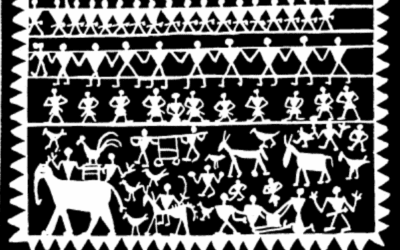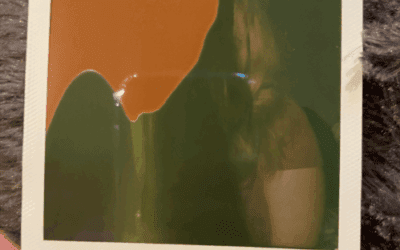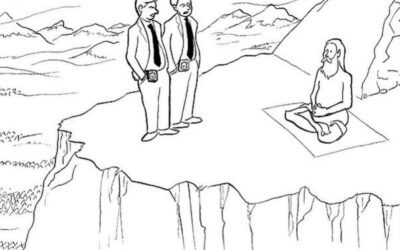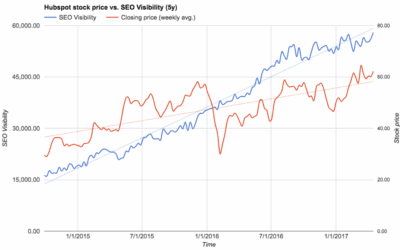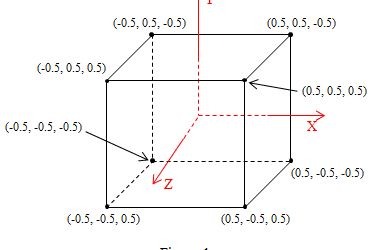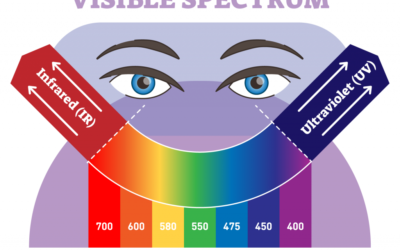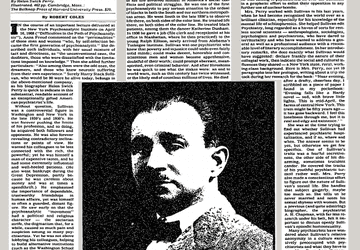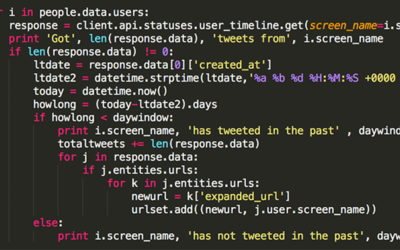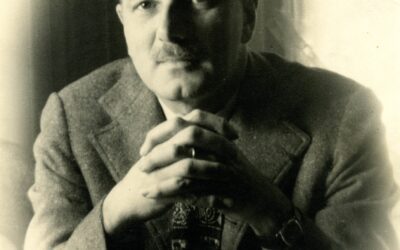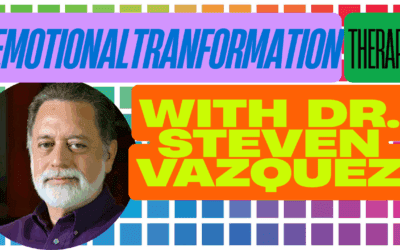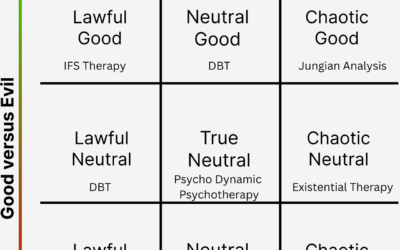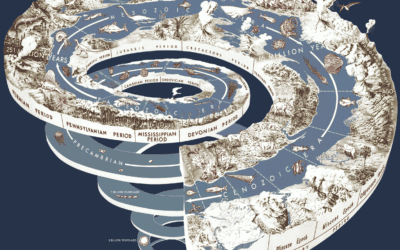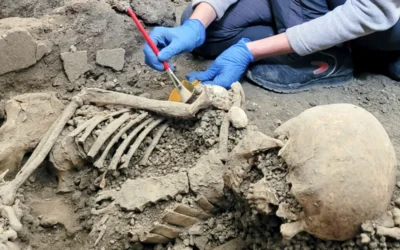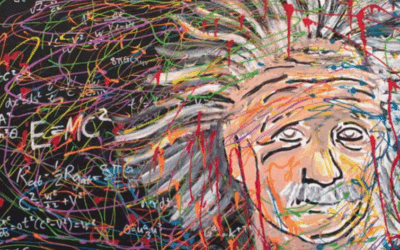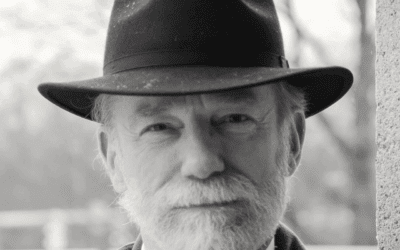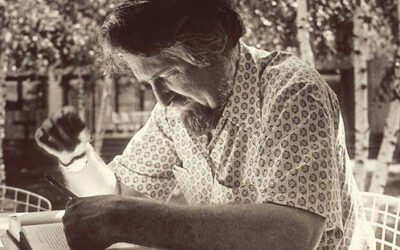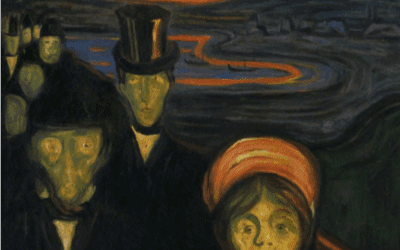The Moment Reality Refuses to Cooperate We've all been there. That moment when our carefully constructed understanding of how things should work collides head-on with how they actually work. The project that should have succeeded fails spectacularly. The person who...
therapist near me
Expert-Led Insights on Trauma, Depth Psychology, and Healing
Welcome to the Taproot Therapy Collective Blog, your deep-dive space into trauma-informed therapy, depth psychology, and the cultural forces shaping mental health today. Our goal is to be a trusted, authoritative resource for individuals and professionals seeking to understand the complex links between the psyche, the body, and society.
Authored by Licensed Clinical Experts
As a YMYL (Your Money, Your Life) resource, we prioritize E-E-A-T (Experience, Expertise, Authoritativeness, and Trustworthiness). Every article is authored and clinically reviewed by our team of licensed therapists in Birmingham, Alabama. Our writers share their firsthand clinical experience and deep expertise in fields ranging from Jungian insights and somatic healing to cutting-edge, evidence-based modalities.
Explore Our Core Topics
Our blog explores the forefront of mental health, including:
- Evidence-Based Modalities: In-depth guides on EMDR (Eye Movement Desensitization and Reprocessing)—a practice standardized by organizations like EMDRIA—and advanced neuromodulation techniques.
- Depth & Somatic Psychology: Investigations into dream analysis through a Jungian lens, shadow work, and how somatic trauma mapping helps track pain that lives inside the body.
- Integrative & Cultural Topics: Discussions on the role of micro-nutrition, media psychology, and critical issues like the weaponization of collective trauma in our digital era.
A Resource for Our Alabama Community and Beyond
While our insights are relevant globally, we are rooted in the Birmingham community. We regularly share resources for therapists and mental health seekers in Alabama. Our writing bridges clinical depth with cultural relevance, designed to help you find articles that resonate and cultivate new possibilities for growth, resilience, and meaningful connection.
Search the Blog by Category
Roberto Assagioli vs. Carl Jung: What If We Took the Hero’s Journey Backwards?
The Wizard Behind the Curtain: The Horseshoe Theory of Consciousness Think about the end of The Wizard of Oz. Dorothy has traveled the Yellow Brick Road, survived the Wicked Witch, and finally reached the great and powerful Oz, only to discover he's a fraud, a little...
Holy Wood: The Intersection of Forestry and Mythology
The Sacred Species and Their Archetypal Meanings In the depths of the human psyche, trees stand as primordial witnesses to our spiritual evolution. They are the axis mundi, the world pillars that connect heaven, earth, and the underworld in virtually every...
The Neurobiology of Resilience: Understanding Why Some Clients Thrive in Therapy
Therapists across all modalities have observed a puzzling phenomenon that challenges our understanding of therapeutic progress: given similar presentations, symptom severity, and treatment approaches, some clients demonstrate remarkable improvement while others remain...
Moving Forward After Divorce: Navigating the Grief and Building Your New Life
Research in psychology and relationship science has consistently demonstrated that the emotional process of divorce mirrors the grieving patterns we experience after a death. Studies from the Journal of Divorce & Remarriage and work by researchers like Dr....
Understanding the Beebe Model: A Deep Dive into Your Psyche’s Hidden Architecture
The human psyche operates like a complex orchestra, with different psychological functions playing distinct roles in how we perceive, process, and respond to the world around us. While many are familiar with basic personality typing systems, few understand the...
The Inventions of Writing and What it Can Teach us about Psychology
The Psychological Revolution of Writing: How Scratches on Clay Rewired the Human Mind The First Writer's Dilemma: A Technology Without Users Picture this scene: Somewhere in ancient Mesopotamia, around 3200 BCE, a person has just made marks on wet clay that represent...
Terror Management Theory: What It Can Teach Us About How Trauma Is Created and Healed
Terror Management Theory (TMT) offers a profound framework for understanding the human psyche's response to existential threats and mortality awareness. This paper explores how TMT illuminates the mechanisms of trauma creation and provides insights into therapeutic...
More Human Than Human: How Blade Runner Saw Our Corporate-Colonized Future
In 1982, Ridley Scott released a film that bombed at the box office but succeeded in something far more important: it showed us the future we were already building. Blade Runner wasn't science fiction. It was documentary footage from a tomorrow that capital was...
The True Lies We Need: What is a Zen Koan?
The Architecture of Metaphor: Truth Beyond Literal Truth Every effective therapist knows that sometimes the most profound truths arrive dressed as fiction. Metaphors are, in their essence, true lies—statements that are literally false yet psychologically, emotionally,...
Metal Gear Solid and the Metamodern: Oscillating Between Grand Narratives and Impossible Fragmentation
An in-depth analysis of how Hideo Kojima’s Metal Gear Solid series embodies metamodern philosophy through its oscillation between grand narratives and postmodern fragmentation, exploring themes of war, identity, and consciousness while paralleling Thomas Pynchon’s critique of post-WWII American empire.
The Psychology of Metal Gear Solid: War, Identity, and the Prophet in the Machine
This article contains mild spoilers from the series. Metal Gear Solid stands as one of gaming's most psychologically complex franchises, not because it tries to be, but because Hideo Kojima possesses an almost preternatural ability to understand the tensions between...
Do You Know How to Trade Stocks? You Might Already Know How to Do SEO for a Small Business
If you've ever bought a stock, analyzed a chart, or built an investment portfolio, congratulations—you already understand the core principles of SEO. The skills that make a successful investor translate remarkably well to digital marketing, and that knowledge gap you...
The Color Paradox: How Hues Control Behavior Through Mechanisms Science Can’t Explain
Color affects human behavior in ways that often defy our understanding of perception, culture, and consciousness. While popular psychology often simplifies these effects, rigorous scientific inquiry reveals a complex landscape where wavelengths of light influence our...
The Psychology of Corners: How Architecture Shapes Behavior in Inexplicable Ways
The angles, curves, and corners of our built environment influence behavior through mechanisms that transcend conscious awareness or practical concerns. People consistently choose corner seats in restaurants but middle seats in theaters, rounded corners reduce stress...
The Paradox of Ugliness in Design: Why Deliberately Bad Design Sometimes Works Better
Craigslist's interface seems frozen in 1995, yet dominates classifieds with 60 billion page views monthly. Drudge Report's chaotic layout repels designers but attracts 30 million visitors daily. Reddit's utilitarian design beats prettier competitors. Some of the most...
Mirror, Mirror: The Bizarre Psychology of Reflections and Self-Recognition
Mirrors are so commonplace we forget how profoundly they alter consciousness. Only humans and a few other species recognize themselves in mirrors, yet this ability creates psychological effects that transcend simple self-awareness. Mirrors reduce cheating, treat...
The Psychology of Empty Space: Why Minimalism Sells Luxury but Clutter Sells Bargains
The amount of empty space in design triggers profound psychological responses that determine perceived value, trustworthiness, and quality. Yet the same minimalism that signals luxury in one context signals cheapness in another, through mechanisms that defy simple...
The Scent of Success: How Smell Hijacks Decision-Making in Ways Science Can’t Explain
Smell is our most ancient sense, yet its influence on behavior remains profoundly mysterious. Invisible scents shape everything from trust to purchasing to moral judgments through pathways that bypass conscious awareness entirely. Unlike vision or hearing, smell...
The Hidden Psychology of Fonts: How Typography Controls Your Brain Without You Knowing
Typography silently shapes every interaction with written language, from the emails we skim to the books we savor, yet its psychological effects remain surprisingly mysterious and often contradictory. A simple font change can alter judicial sentences by years,...
The Psychology of Waiting: Why Lines Feel Shorter at Disney but Longer at the DMV
The experience of waiting defies objective time measurement in ways that continue to baffle researchers. A five-minute wait at the DMV feels eternal, while a 45-minute queue for Space Mountain flies by. This isn't just about fun versus bureaucracy; the psychology runs...
10 Mysteries from Psychology Research: When Science Can’t Fully Explain Human Behavior
The human mind remains one of science's greatest frontiers. Despite decades of rigorous research, certain psychological phenomena continue to defy complete explanation. These mysteries persist even after controlling for obvious variables, leaving researchers with...
Reflections on Harry Stack Sullivan’s Play “The Physician”
The Paradox of Healing In the vast landscape of psychotherapeutic literature, few works capture the intricate dance between healer and patient as poignantly as Harry Stack Sullivan's play "The Physician." This lesser-known dramatic work, highlighted by Irvin Yalom in...
50 Sociology and Anthropology Theories Every Therapist Should Know a Study Guide
The intersection of sociology, anthropology, and psychotherapy offers profound insights into human behavior, mental health, and healing. While therapists often focus on individual psychology, understanding the broader social and cultural contexts that shape our...
The Algorithm’s Dark Psychology: 10 Disturbing Ways Your Mind is Being Hacked
The Ghost of Bernays in the Machine In 1929, Edward Bernays orchestrated one of history's most insidious marketing campaigns. Sigmund Freud's nephew didn't just sell cigarettes to women. He weaponized their desire for liberation, transforming toxic smoke into "torches...
How the web 3.0 algorithms use psychology to manipulate you
We like to think we're in control of our decisions. That clicking "add to cart" was our choice. That we stayed up until 3 AM scrolling because we wanted to. That we genuinely prefer that brand of detergent. But beneath the surface of our digital lives, sophisticated...
The Machine as False God: Lewis Mumford’s Pentagon of Power and the Crisis of Contemporary Psychotherapy
In 1970, Lewis Mumford published the second volume of "The Myth of the Machine," titled "The Pentagon of Power." Writing at the apex of American technocratic confidence, the year after the moon landing, at the height of the Vietnam War, amidst the birth pangs of the...
Language as Mirror: How Saxon and Latinate Word Choices Reflect Values and Shape Therapeutic Practice
Research shows concrete language builds stronger therapeutic alliances while abstract vocabulary can create emotional distance. Essential insights for mental health professionals on using language effectively.
The Worst Drug for You Is the One That Makes You Feel Normal: Understanding Addiction Through Modern Neuroscience
🧠 The Neurobiology of "Normal": Why Addiction is the Brain Seeking Equilibrium There's a moment that many people struggling with addiction describe with haunting clarity: the first time a substance didn't make them feel high, but made them feel normal. For the first...
Breaking the Cycle: Understanding and Healing as an Adult Child of an Alcoholic
Growing up in a household affected by alcoholism creates ripples that extend far into adulthood. If you're an adult child of an alcoholic (ACoA), you may find yourself grappling with patterns and challenges that seem mysterious until you understand their origins. This...
The Science of Light and Color in Trauma Therapy:
Dr. Steven Vazquez's Revolutionary Emotional Transformation Therapy In the ever-evolving landscape of psychotherapy, few innovations challenge our fundamental understanding of healing as profoundly as Emotional Transformation Therapy (ETT). Developed by Dr. Steven...
From Skepticism to Science: How Emotional Transformation Therapy is Revolutionizing Mental Health Treatment – A Deep Dive with MJ Denis
When Light Meets Neuroscience In the ever-evolving landscape of mental health treatment, breakthrough moments often come from the most unexpected places. What if the key to unlocking trauma, dissolving anxiety, and alleviating chronic pain wasn't found in talking...
Rolling for Wellness: How Dungeons & Dragons Teaches Emotion Regulation to Adults and Children
When Fantasy Meets Therapy In recent years, mental health professionals have begun discovering what millions of players worldwide have long suspected: there's something profoundly therapeutic about gathering around a table to embark on imaginary adventures. Dungeons...
2025 Alabama Therapist Compliance Guide: New Laws, Paperwork Updates, and Strategic Planning
Alabama Therapists' Complete Regulatory and Financial Survival Guide 2025 Critical Updates for Practice Sustainability in an Era of Unprecedented Change Alabama therapists face transformative regulatory changes in 2025 that require immediate attention to paperwork,...
On the Absence of Idols: On Mythopoetic Meaning Making
"There is a very strong and very ancient emotion that is rarely mentioned or recognized: it is the anguish we feel for the absence of idols. If the eye has no image on which to rest, if there is nothing to mediate between the mental phantasm and that which...
The Silurian Hypothesis as a Therapeutic Thought Experiment: What Ancient Civilizations Teach Us About Certainty, Humility, and the Unknown
The Silurian Hypothesis, proposed by astrophysicist Gavin Schmidt and astrobiologist Adam Frank in 2018, presents a fascinating question: if an advanced industrial civilization existed on Earth millions of years ago, would we even be able to detect it? Named after the...
Somatic Archeology: Excavating the Body’s Hidden Histories
Somatic archeology represents a fascinating intersection of bodywork, trauma therapy, and consciousness studies that has emerged over the past several decades. This interdisciplinary approach views the human body as a living archive of experiences, memories, and...
Pain Reprocessing Therapy: Rewiring the Brain’s Response to Chronic Pain
Pain Reprocessing Therapy: Rewiring the Brain's Response to Chronic Pain Understanding the Chronic Pain Crisis Chronic pain affects over 50 million adults in the United States alone, representing one of the most significant health challenges of our time. Unlike acute...
The Sacred Gaze: Eyes as Windows to the Divine in Ancient Art
The human eye, that most expressive feature of the face, has held profound significance across ancient cultures as both a physical organ and a powerful symbol of divine connection, spiritual authority, and cosmic understanding. Yet the artistic treatment of eyes in...
The Hidden Economics of Healthcare – Why Cutting Medicaid Costs Everyone More
The Million-Dollar Math Nobody Talks About When Joel Blackstock worked on an assertive community treatment team in Alabama, he discovered something remarkable: for every chronically homeless person with severe mental illness that his 13-person team helped, they saved...
When the Robots Stop Taking Notes: A Therapist’s Guide to the Coming AI Apocalypse
Picture this: A company called Second Sight Medical Products spent years convincing blind patients to have computerized implants surgically embedded in their eyes. The Argus II retinal prosthesis system promised to restore partial vision through a complex array of...
From Words to Swords: The Psychology of Mastery and Self-Discovery Through Craft
Discover how master swordsmith Walter Sorrells transformed from novelist to Japanese sword maker, exploring the psychology of craftsmanship, artistic development, and finding your authentic self through dedicated practice.
Psychohistory and the Mathematics of Civilizational Fate: When Science Fiction Becomes Social Science
The Dream of Mathematical Prophecy In Isaac Asimov's Foundation series, the mathematician Hari Seldon develops psychohistory—a mathematical sociology capable of predicting the future of large populations with statistical certainty. This fictional science, combining...
Art as a Parallel Reality: An Interview with Konstantin Korobov
We're pleased to share this written interview with Russian artist Konstantin Korobov, conducted with the help of AI translation services. Through this cross-cultural exchange, we explore the mind of an artist who creates dreamlike, symbolic works that invite viewers...
The ADHD Experience: Understanding the Challenges and Triumphs
Attention Deficit Hyperactivity Disorder (ADHD) is a neurodevelopmental condition that impacts millions of individuals worldwide. Often misunderstood and stigmatized, ADHD is characterized by a complex interplay of inattention, hyperactivity, and impulsivity that can...
Illuminating the Kaleidoscope: A Multidimensional Perspective on Autism Spectrum Disorder
Autism Spectrum Disorder (ASD) is a complex neurodevelopmental condition that impacts individuals across multiple domains of functioning. Rather than viewing autism as a linear spectrum, it is more accurately conceptualized as a dynamic interplay of strengths,...
The Birth of Consciousness: Jungian Archetypes, Neuroscience, and Anthropology in Neil Gaiman’s Sandman
Disclaimer: Neil Gaiman, the author of The Sandman, has been accused of serious misconduct. While we do not condone his alleged actions or endorse financially supporting him, his influential work has been significant in the fields of psychology, myth studies, and...
Who is Mark Turner?
The Literary Mind: Mark Turner's Cognitive Science and Its Implications for Understanding Trauma and Consciousness in Psychotherapy In the quest to understand the complexities of human consciousness and the impact of trauma on the psyche, the work of cognitive...
Who is Cliford Geertz?
Weaving the Web of Meaning: Clifford Geertz's Cultural Anthropology and Its Implications for Trauma and Consciousness in Psychotherapy In the realm of psychotherapy, understanding the intricate tapestry of human experience is paramount. To truly grasp the complexities...
Living with Anxiety: Understanding and Finding Relief from Chronic Worry
What Anxiety Feels Like: The Constant Companion Anxiety can feel like having an alarm system that never turns off. Your body remains in a state of alert even when there's no immediate danger, creating a exhausting cycle of worry, physical tension, and emotional...
Explore the Articles by Categories on Our Blog
Blog Categories
Psychology Topics and Articles
A comprehensive exploration of psychology topics spanning the breadth of human experience, from fundamental concepts like memory and emotion to specialized areas like forensic psychology and environmental mental health.
Psychology Articles
Explore the fascinating world of psychology, from depth psychology and symbolism to cognitive, social, and developmental theories. Uncover the mysteries of the human mind and behavior.
Depth Psychology & Jungian Approaches
Jungian Therapy and Depth Psychology
Explore Jungian concepts such as archetypes, the collective unconscious, and individuation. Learn how dream analysis and symbolism facilitate self-awareness and personal growth through the insights of Carl Jung.
Dreams and the Unconscious
Explore the significance of dreams in depth psychology, from Freud’s dream interpretation to Jungian archetypes. Learn how dreams provide insights into the unconscious mind, personal growth, and trauma healing.
Symbolism and Meaning in Psychotherapy
Uncover the profound language of symbolism and meaning-making in the human psyche. Explore universal archetypes, myths, and metaphors through depth psychology and the symbolic dimensions of trauma.
Mythology and Therapy
Journey into the captivating world of classical mythology, focusing on the rich traditions of ancient Greece and Rome. Explore how myths offer profound insights into the human condition and universal themes.
Evidence-Based Practice & Research
Evidence Based Practice and Research Psychology
Explores the frontier of evidence-based practice in psychotherapy, taking a fresh look at the scientific foundations of mental health treatment through the integrative lenses of depth psychology and trauma neurology.
Evidence Based Practice in Therapy
Examines the complex landscape of research-informed therapy while critically evaluating the limitations, biases, and cultural considerations that shape how we apply research findings to real-world clinical practice.
Philosophy & Existential Approaches
Philosophy for Therapists
Explore existentialism, metaphysics, ethics, and the philosophy of mind. Discover insights from renowned thinkers and engage in thought-provoking discussions.
Phenomenology and Existential Psychology
Explore phenomenological and existential approaches to understanding human experience and psychological healing, focusing on lived experience, authenticity, freedom, and meaning-making.
Metamodernism and Deconstruction
Examine how post-postmodern frameworks illuminate contemporary mental health challenges including cultural displacement, narrative fragmentation, authenticity struggles, and the oscillation between hope and despair.
Psychology of Modernism Post Modernism and the Meta Modern
Explore the psychological dimensions of cultural paradigms and their impact on identity, meaning-making, and therapeutic practice.
Neuroscience & Brain-Based Approaches
Neuroscience and the Brain for Therapists
Delve into the intricate relationship between brain function, trauma, and mental health treatment. Discover insights into innovative therapeutic approaches, neuroplasticity, and the role of emotions in healing.
Media & Culture Psychology
Psychology of Film and TV
Explore the hidden dimensions of film and TV through the lenses of depth psychology and trauma neurology. Discover how the moving image reflects and shapes the psyche, both individually and collectively.
Psychology of Media and Culture
Explore the profound psychological and symbolic impact of media and culture on our individual and collective psyche. Uncover the hidden meanings and archetypal themes woven into the fabric of our cultural landscape.
Specialized Psychology Fields
Industrial Organisational Psychology
Explore Industrial-Organizational Psychology, focusing on workplace performance, employee well-being, leadership development, and organizational culture.
Psychology of Buildings and Architecture
Explore the psychology of design and architecture, from the emotional impact of spaces to human-centered design. Learn how architecture influences mental health, well-being, and behavior.
Color Psychology
Explore how colors influence psychological experience, from the neurological mechanisms behind color perception to practical applications in therapeutic environments and creative healing approaches.
Psychology of History
Explore the symbolic significance and psychological undercurrents of historical events through the lens of depth psychology, symbolism, and design psychology.
Psychology of Conspiracy Theories
Examine the psychological dynamics behind conspiracy thinking, critical thinking, and the appeal of alternative narratives in contemporary culture.
Anthropology & Cross-Cultural Psychology
Anthropology and Evolutionary Psychology for Therapy
Embark on a fascinating journey into the deep history of the human psyche, exploring how anthropology and evolutionary psychology shed light on ancient origins of modern minds, behaviors, and cultures.
Spiritual & Religious Approaches
Christian Mysticism in Therapy
Discover the transformative power of Christian mysticism and contemplative spirituality, exploring how practices like centering prayer and lectio divina can heal trauma and facilitate encounters with the deep Self.
Spirituality and The Transcendent Function in Psychotherapy
Explore the intersection of spirituality and depth psychology to uncover the role of spiritual practices in trauma healing, consciousness, and personal transformation.
Comparative Religion for Therapy
Discover the universal quest for meaning, transcendence, and healing across spiritual traditions, exploring key practices and insights from world religions through depth psychology and trauma neurology.
Psychology of Mystics, Gurus, and Spiritual Philosophers
Examine the psychological dimensions of mystical experience and spiritual teaching across various traditions and historical periods.
Specialized Treatment & High-Control Groups
Cults and High Control Group Psychology
Explore the shadowy psychodynamics of coercive control, from cults to abusive relationships. Learn to recognize red flags of undue influence and support recovery processes.
History & Biographical Studies
History of Psychotherapy
Trace the evolution of psychotherapy through the lens of depth psychology and symbolism, from Freudian psychoanalysis to contemporary approaches.
Psychotherapy Biographies: Historical Figures in the History of Psychology
Explore the lives and contributions of influential figures who shaped the field of psychology and psychotherapy.
Models of Psychotherapy
Explore depth psychology, CBT, humanistic therapies, and more. Discover how various therapeutic approaches promote healing and personal growth.
Holistic & Alternative Approaches
Alternative Medicine and Holistic Health
Discover a deeper approach to health and healing by exploring alternative medicine practices and holistic wellbeing through the lenses of depth psychology and trauma neurology.
Guided Meditations for Therapy
Comprehensive collection of guided meditations designed to support mental health, emotional regulation, and spiritual well-being.
Hardy Micronutrition is clinically proven to IMPROVE FOCUS and reduce the effects of autism, anxiety, ADHD, and depression in adults and children without drugs — Watch Interview With Hardy • Visit GetHardy.com and use offer code TAPROOT for 15% off

